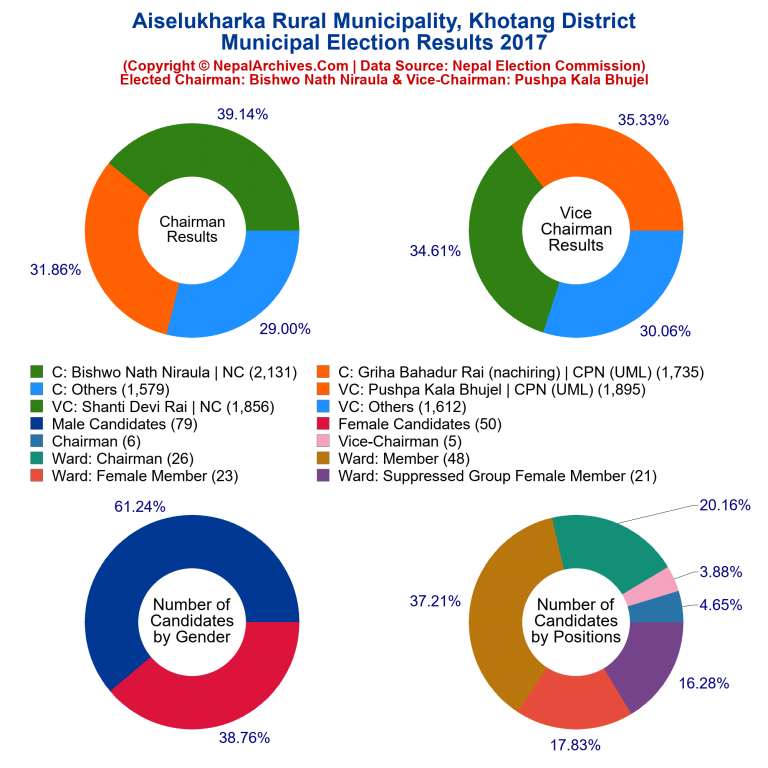In 2017 election of Aiselukharka Rural Municipality (Khotang district), candidate Bishwo Nath Niraula of Nepali Congress Party (NC) secured 2,131 (39.14%) votes out of total votes of 5,445 and was elected as a Chairman. The first runner-up candidate was Griha Bahadur Rai (nachiring) of Nepal Communist Party (Unified Marxist-Leninist) (CPN (UML)) who secured 1,735 (22.90%) of votes. The rest of 4 candidates for the position of Chairman secured combined 1,579 (14.50) of votes.
Similarly, for the position of Vice-Chairman, candidate Pushpa Kala Bhujel of Nepal Communist Party (Unified Marxist-Leninist) (CPN (UML)) secured 1,895 (35.33%) and was elected as a Vice-Chairman, while Shanti Devi Rai of Nepali Congress Party (NC) secured 1,856 (25.57%) of votes and came in second position. Other 3 candidates who contested for Vice-Chairman secured combined 1,612 (15.03) of votes.

As illustrated in the pie chart, there were total 129 candidates contested in various positions with gender ratio of 79 (61.24%) males and 50 (38.76%) females. Moreover, there were total 26 candidates contested for ward chairman positions in 7 wards. Same as, total 48 candidates had contested for ward member positions while 23 females and 21 females from depressed group (dalit) had contested for female member position in each ward.
Similarly, for the position of Vice-Chairman, candidate Pushpa Kala Bhujel of Nepal Communist Party (Unified Marxist-Leninist) (CPN (UML)) secured 1,895 (35.33%) and was elected as a Vice-Chairman, while Shanti Devi Rai of Nepali Congress Party (NC) secured 1,856 (25.57%) of votes and came in second position. Other 3 candidates who contested for Vice-Chairman secured combined 1,612 (15.03) of votes.

As illustrated in the pie chart, there were total 129 candidates contested in various positions with gender ratio of 79 (61.24%) males and 50 (38.76%) females. Moreover, there were total 26 candidates contested for ward chairman positions in 7 wards. Same as, total 48 candidates had contested for ward member positions while 23 females and 21 females from depressed group (dalit) had contested for female member position in each ward.
